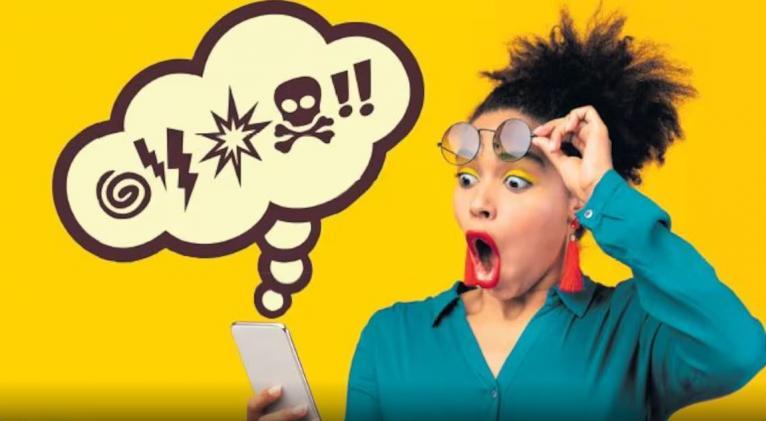The Spanish We Speak
especiales

If we step outside the media, literature, and other related environments—which I don't want to call scholarly, but which do require careful language—we realize the progressive deterioration of our language. On the street, people speak less than elementary Spanish, so poor and lazy it's embarrassing.
Of course, we can't expect high-sounding words to be used in colloquial usage or that in the heat of a disagreement, other profanities won't be used because, with the justification of emotions—they say, and I disagree—there are no different ways to react and sustain a discussion.
From the social laboratory I have on the porch of my house in Buena Vista, Playa, I think I have enough material and a representative sample of what I later find repeated when I visit other neighborhoods.
The phenomenon transcends neighborhoods and spreads to generations of individuals who don't care if they mispronounce or conjugate a term, if they use one without knowing its meaning, if they invent others or repeat what's "trendy" even if it doesn't make sense, or if they have a vocabulary as limited as that of a child who hasn't yet finished elementary school.
The result is a nonsensical discourse, and the worst part is that this is how people understand each other, and that this distortion of language finds support in content that circulates from device to device and word of mouth, like music—if you can call it that what I hear on those motorcycles blasting phrases that alarm and embarrass me.
Why isn't it fashionable to speak beautifully and well, to learn more words? What initiatives will authorities and the education system be taking in response to this abrupt decline?
Language is instruction beyond civility and good manners. They have points where they overlap, but one does not necessarily depend on the other. We learn and perfect it over many years. We enrich it throughout our lives, initially more so at home and at school.
Teachers are primarily responsible for our linguistic development. However, in this sense, I cannot say for sure what happens or at what point in its development learning goes awry and regression begins, because it responds to a multifactorial process. We already know that the priority in the classroom is to practice reading and writing, but it is common for speech to remain basic, rather than subdued or idiotic.
The unrefined is gaining ground strongly, predominating and imposing itself in all settings, and the opposite is viewed with suspicion by some, as if expressing oneself correctly were a joke. While others watch it with admiration, recognize good vocabulary and do not reject it, but fail to emulate it. They're not interested.
Of course, we can't expect academic speeches to be heard on the street; that's more than anachronistic, it's impossible. But there are basic rules we should learn from elementary school onward, and they have to do with creating, at the very least, simple, well-structured sentences to facilitate communication.
The distortion of language is a slow and progressive issue that I associate with poor education from early levels, accompanied by a growing cultural and popular trend. I believe that early education is failing in its mission, and that it’s precisely there that it’s necessary to implement policies to reinforce the study and proper use of the Spanish language, to encourage it through initiatives that are attractive and hold attention, using the channels that most closely connect with their audiences.
In its social use, language construction is fueled by contextual dynamism and its interactions. The need for understanding is important, but colloquialism, the redefinition of terms that colonize communication, and idioms that we sometimes don't understand from the outside, even with the support of non-linguistic codes such as extraverbal language, play a significant role. All of this leads to fragmentation.
The Spanish spoken in Cuba is very unique and, moreover, nuanced by different realities. The decline in its richness is evident, so on International Day of our Language, we want to remember the value of speaking well, of making it decent and intelligible.
According to the United Nations (UN), Spanish is the second most widely used language in the world based on the number of native speakers, with approximately 500 million people. Furthermore, it’s the third most used language on the Internet, the second on major digital platforms, and the fourth most studied. It’s the official language in more than 20 countries in the Americas, Europe, and Africa, and it’s estimated that by 2050 there will be more than 700 million Spanish speakers.
Every April 23rd, International Spanish Language Day is celebrated in honor of the literary genius Miguel de Cervantes Saavedra (Spain, 1547-1616).
Translated by Amilkal Labañino / CubaSí Translation Staff














Add new comment